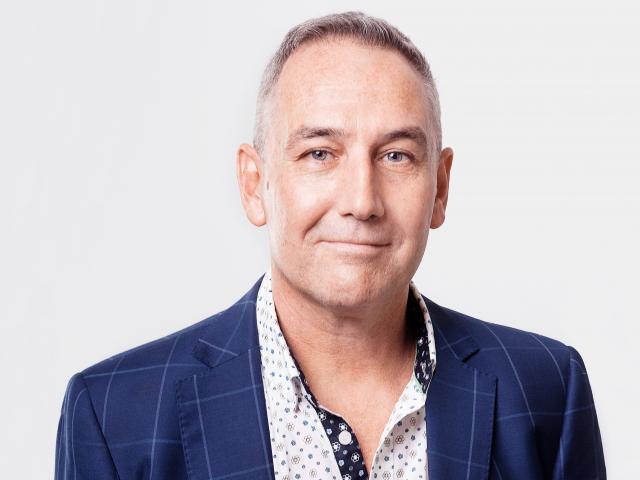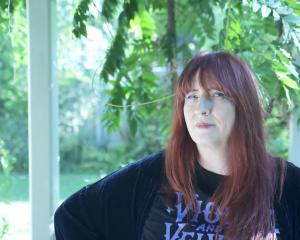
Young people are experiencing mental distress in record numbers, as politicians and health providers scramble to improve young people's wellbeing, writes Bruce Munro. The solution, however, may be as simple as it is demanding.
At 15, Alice felt as if she was free-falling through darkness with nothing to hold on to.
Kicked out of home, kicked out of school; for this Otago-raised teenager, all the usual supports in life had slipped out from underneath her.
"I had none of home, school, peers or community ... I was disconnected from everything,'' Alice (surname withheld) says. "It was pretty dark. I felt like Alice falling down the rabbit hole. For a while, I was lost.''
With it all came severe anxiety, eating disorders and "just everything''.
"I was going through all the negative ways of trying to find out who I was: not hanging out with the best people, getting into trouble with the police ...''
Her experiences taught her, "I am troubled. I'm a youth offender. That is who I am.''

Young people are requiring mental health services in alarming numbers. In May, Minister of Health Dr Jonathan Coleman revealed that last year more than 44,500 young people sought help from mental health and addiction services throughout New Zealand. That compares with about 39,900 young people three years ago.
Then, a fortnight ago, it was reported that if all Ministry of Health-supported mental health services were taken into account - including texts, phone calls and face-to-face appointments - that number soared to 562,554 young people seeking help last year.
With demand for youth and adult mental health services growing 71% during the past decade, government funding has had to increase dramatically. Since 2006, money going to primary mental health services has increased almost sixfold to $29.3 million a year. Lump together all government-funded mental health and addiction services, and the total spend is now $1.4 billion each year.
It has reached the point where, during this month, the Ministry of Health will hold two cross-government and cross-sector gatherings to look for answers.
If what some of those working with young people are saying is correct, the real challenge will be to look and then act with sufficient depth and breadth.
Shaun Robinson, who is chief executive of the Mental Health Foundation of New Zealand, says the world in which young people are growing up is uniquely complex.
"The experience of the average 15-year-old today, has never been the experience of a 15-year-old in history before,'' Mr Robinson, of Auckland, says.
"With the amount of information they are exposed to, and the amount of rapid economic and social change occurring around them, this is definitely a very stressful time.''
Change is difficult for people of any age, but for young people who are also trying to understand their place in the world, it is even more challenging.
"Research has found that children today suffer from unprecedented levels of stress, resulting in anger, behavioural problems, depression and anxiety as well as lowered self-esteem and confidence,'' he says.
On top of that internal and external change, Mr Robinson says too many young people are having to deal with issues such as domestic violence, sexual abuse, child poverty, the housing crisis and rapid changes in the ethnic makeup of communities.
In this maelstrom, a key danger for young people's mental health is the erosion of connection, he says.
"Social connections and inclusion are absolutely vital. It is clear any factors that push people to the margins of the community - be that stigma and discrimination around racism, or sexual preference or whatever - it increases the likelihood of people not feeling good, of not functioning well. Then if you add other factors such as inadequate income and inadequate housing to the mix, those things make it harder for people to participate in their communities, which isolates people more and ... makes it harder for them to participate in job searches, or work, or school or training. It can be a real vicious cycle.''
Michael (real name withheld) does not mince his words describing the impact of that sort of experience.
"I grew up in a family where there was alcohol and violence and substance abuse. It was not the life I chose. It was just given to me. I drew the short straw,'' the Otago 16-year-old says.
"Why is it that the ones who are supposed to love you the most are the ones hurting you the most?''
Even when he was away from that situation, Michael made decisions that added to the distress.
"Things would be going good and then I'd sabotage it. Because, growing up, everything was always changing, so I only felt right when I was in a place of chaos.''
Mr Robinson says the conversation about mental health has to take a significant step sideways.
"Often when people talk about mental health, they mean mental illness.
"What we really need to start talking about is mental and emotional wellbeing.''
Wellbeing is something we can and should take action on a long time before any crisis occurs, he says.
The Mental Health Foundation promotes what it calls the Five Ways to Wellbeing. The behaviours are drawn from a United Kingdom meta-analysis across a wide range of disciplines - from psychology through educational theory and practice to neuroscience - to distill the common ingredients of emotional and mental wellbeing.
They are: connect, give, be active, take notice and keep learning.
"So these are a range of behaviours which people can work into their lifestyle, which equip them to cope better with the emotional ups and downs of life which can lead to mental illness or distress.''
The foundation has wellbeing programmes running in Canterbury, in the rural sector and in schools. In Otago, to date, the only school to have picked up the programme is Musselburgh School, in Dunedin.
Habits of behaviour and mind that promote wellbeing can also help young people who develop mild to moderate anxiety and depression to build resilience that will protect them in the future.
"It is totally possible to recover from periods of extreme distress to live a flourishing life; a life in which you do feel good and function well,'' Mr Robinson says.

For Michael, it was connections through the Otago Youth Wellness Trust (OYWT) that started to turn things around.
"One of the case-workers was really there for me. That place has been my saviour, pretty much,'' he says.
Through the case-worker, he began further training where, for the first time, he related well to those at the front of the classroom. He has also made the first tentative connections with Maori culture.
"It was never a big part of my growing up, but it is something I've always felt connected to. I've been to two courses that I've liked and they've both had a Maori kaupapa. It's definitely a positive connection in my life.''
Jenny Munro is a senior practitioner at the Dunedin-based OYWT. It offers a multifaceted service to 11- to 18-year-olds with complex needs who are unlikely to go elsewhere for support.
Like Mr Robinson, Mrs Munro questions the current approach to youth mental health.
"Are we pathologising normal responses to grief, loss, trauma and stress?'', she asks.
She too prefers a focus on wellbeing and believes connection is its cornerstone.
But she makes an important distinction between superficial and deeper connection.
"For me, connection is about belonging,'' Mrs Munro says.
"Young people can be formally connected to all sorts of things, but do they have a sense of belonging?
"An integral part of our wellbeing is to feel that we belong. A quality, trusting relationship is the most basic thing that is needed.
"It's not rocket science. But that's what we've found can make a difference. Because through that connection, you can work alongside the young person to bring about some change.''
In offering a sense of belonging, the trust's case-workers become a bridge between the young person's old life and a new one of more and deeper connections.
For Alice, who is now 25, the dark period of isolation was a decade ago. Her case-worker was "alongside'' for two years. The effect was transformational.
"I felt my case-worker was the only one who really heard me as a young person, and really saw me for `me','' Alice says.
"She saw past all my behaviours and actions. She was the one who said, `This isn't you, it's just part of what is happening to you right now. It won't be forever.' She held the hope for me. That was a huge, integral part, giving me the strength and resilience to build myself back up.''
Alice went on to university study. She now works with young people.
That raises another point, Mrs Munro says.
Unwellness, mental ill-health, is no respecter of socio-economic or educational boundaries.
''There will be a lot of young people at university who are struggling,'' she says. ''The culture of performing and achieving makes it quite difficult. Anxiety is huge.''
Despite being at opposite ends of the country and in different organisations, Mr Robinson and Mrs Munro are both pointing not just to the power of real connection, but to the need for significant societal change if more young people are to experience that sense of belonging that is foundational to wellbeing.
''My point is we know these things work, let's find ways to promote them and get people to use them,'' Mr Robinson says.''And let's address some of the things that hinder people's ability to live with wellbeing such as child poverty, abuse and domestic violence; and let's make sure there are enough and appropriate services for people when they do fall into a state of extreme distress.
''We know that if we do those things, then things will get better. So that is what we should focus on.''That is the message he will be taking to the upcoming national mental health gatherings.
It takes a village to raise a child, Mrs Munro says.
''So, where is the village for these young people?'' she asks.
''There is a huge need out there. But neoliberalism is a market model that risks reducing people to economic units. What it will take is the preparedness to notice those around us and to think how we can all contribute to the health and wellbeing of these young people. They are our future.''
Jenny Munro is not related to the author.
Comments
I would like to comment, based on a sociological worldview. To change structures and environments improves social wellbeing. No one's going to do that, of course, so young people may 'use' the system for their own empowerment. In particular, ignore adults, unless they are worthy of respect. Resist repressive people and systems that generate depression. Report abusers to the police. Kick back, within the Law. Society has to decide if it wants well, independent citizens or compliance. We can't have both.












